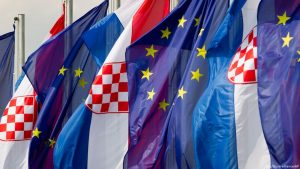As one of the members of the European Union, Croatia has paid 19.7 billion kuna into the EU’s joint budget since its accession back in the summer of 2013. The Republic of Croatia has since received 34.1 billion kuna in the same period, resulting in a welcome plus of 14.4 billion kuna, the Ministry of Regional Development and EU Funds stated.

”With the faster and better absorption of EU funds available, this difference will continue to grow. At present, more than 80 percent of all public investments and 8,306 private companies in Croatia are funded by the European Union’s non-refundable funds,” the aforementioned ministry added in its recent press release.
”Since joining the European Union, the general economic trends in Croatia show that they’re going in a positive direction: the increase in gross domestic product (GDP); the reduction of unemployment; the growth of exports, especially in the European Union, as a result of Croatia’s free access to the EU’s single market which consists of 500 million inhabitants.
The stable environment within the EU also favours the development of tourism as an extremely important economic branch [for Croatia]. With regard to fiscal policy, a major step forward has been made, and significant efforts have been made in the field of public finances, while trends that have been extremely unfavourable have also been reversed, along with the many opportunities that are offered by EU funds,” the ministry said in its statement.
Source: Total Croatia News